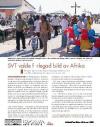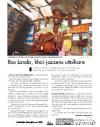Namibia : kolonialisme, apartheid og frigjøringskamp i det sørlige Afrika
| Upphovsperson: | Eriksen, Tore Linné |
|---|---|
| Utgivare: | Nordiska Afrikainstitutet | Uppsala : : Nordiska Afrikainstitutet |
| År: | 1982 |
| Ämnesord: | Namibia, Southern Africa, History, Colonialism, Apartheid, Liberation, Economic conditions, Political science, Statsvetenskap |

